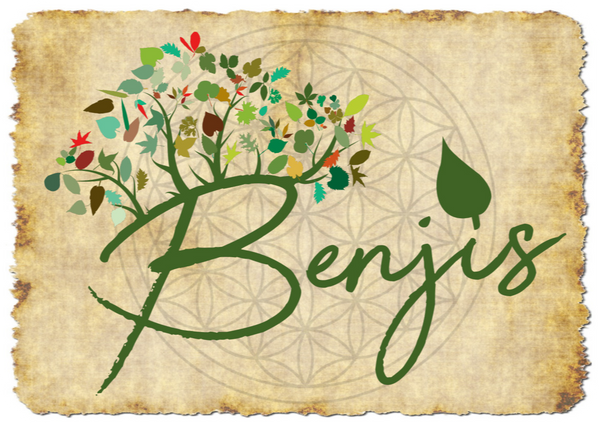Benjis seeds
Chard Rainbow [Beta vulgaris]
Chard Rainbow [Beta vulgaris]
Couldn't load pickup availability
Tips to reduce water requirements
Tips to reduce water requirements
We recommend mulching the beds
Experience has shown that by covering the ground, e.g. with Hay or straw, which can reduce evaporation by 80%. If you keep the beds evenly moist, an optimal moist microclimate will be created under the mulch. This not only promotes the growth of the plants, but also reduces water consumption enormously.
It is also recommended to always keep the beds moist , even if the bed is not used for a certain period of time
The drying out of the soil leads to a huge decline in the micro- and macro-organisms in the soil, which over time leads to an infertile soil . Tests have shown that the water content in the entire bed remains longer when the entire bed is watered over a longer period of time than when it is only watered selectively. Due to the small volume of the poured areas in contrast to the large dry volume, they dry out more quickly than if the entire volume of the bed is filled with moisture. Similar to heating in an apartment.
If the beds are not in use, we recommend sowing with green manure.
Maintaining an energy level always requires less energy than having to reach it again and again.
The 'Rainbow' chard is a biennial leafy vegetable and chard mix of four pure-colored varieties: Oriole (yellow), Rosho (red), Salimo (purple), and Limago (orange). Already in ancient Greece and Rome he was valued as a vegetable. This colorful and appealing new breed from Germany grows vigorously and develops healthy plants, with large delicate leaves. The taste is mild-sweet and asparagus-like. Young cut leaves are also suitable as baby leaf mixtures. The mixture is undemanding and a versatile nursery plant that also thrives in partial shade or in full sun. The variety can be harvested over a long period of time. For year-round cultivation in subtropical climate.
General information
Plant family: Amaranthaceae
Life Cycle: Two years old
Days to harvest: 80 days
Plant height approx.: 50 cm
Root Type: Deep Root
Nutrient requirements: Medium Eaters
Water Requirements: Means
Winter hardiness: Up to-12 °C
Location: Sunny to partially shaded
Floor: Permeable, moist, slightly loamy, humus
PH: 6 to 7.5
Sowing and planting information
Germ Type: Dark germ
Seed Depth: 1-3 cm
Optimal germination temperature: 15-20 °C
Germination time: 6-10 days
Planting, row spacing: 30x40 cm
Optimal mixed culture: Beans, peas, radishes, cabbage, carrots, parsnips, basil, pumpkin, horseradish, lamb's lettuce
Unfavorable mixed culture: Beetroot, spinach
Subtropic climate (Mediterranean) (e. g. B. Portugal, Spain, Italy)
Sow directly outdoors from January to December. We also recommend pre-cultivation in small bowls.
Moderate climate (e. g. B. Germany, Switzerland, Poland)
Sow directly into the frost-free open air from April to August. We recommend pre-cultivation in small bowls from March to August.
General
For a long harvest period, harvest 1/4 of the leaves from the outside to the inside, taking care not to damage the heart to keep growth stable. We recommend both sowing options for Swiss chard, no-till sowing in rows or pre-cultivation. In pre-cultivation Let the seedlings grow in a small bowl to the first visible chard leaves, then pique them into the desired container. After peckering, let the seedlings grow at moderate temperatures until they are planted out as seedlings. The planting of the seedlings in the bed is carried out from the 2nd Pair of leaves after the cotyledders.
Mangold plants prefer a sunny to partially shaded location with a moist, humus-rich and slightly loamy soil. Avoid waterlogging.
Additional tips
Avoid temperature fluctuations during cultivation. In order to quickly obtain a fine, crumbly and well-drained soil, an additional incorporation of biochar and primeval rock flour is recommended.
Type of propagation
Spread occurs via seeds.
Care Plants
A loosened soil, beds prepared with animal manure and planting in mixed culture, replaces additional fertilization.
Germination ability of seeds: 5-6 years
Other Names
Botanical names: Beta vulgaris
English Names: Chard
German names: Mangold
Portuguese names: Acelga
Spanish Names: Acelga
French names: Bettes, Blettes, Bette à carde
- Made in harmony with nature
- All seeds and seedlings are genetically stable for further propagation
- Our seeds are always checked for germination at regular intervals
Shipping and pick-up information
Shipping and pick-up information
Shipping
We offer CTT shipping for Saagut Europe and USA far! With us you will always receive a tracking number to track your package. Shipping costs differ depending on the shipping region. Here is a list of regions and prices:
National Shipping
Portugal (with the Azores and Madeira Islands)
Envelope or package up to 500g = € 3.50
2 kg Bus Package = 8 €
Package over 2 kg = 16 €
Europe Shipping
Envelope up to 100g = 7 €
500g Bus Package = 9,50 €
1kg Bus Package = 14 €
2kg Bus Package = 20 €
Package over 2kg = 40 €
USA Shipping
Envelope up to 100g = € 7.50
500g Bus Package = 15,50 €
1 kg Bus Package = 24 €
2 kg Bus Package = 33,50 €
Package over 2 kg = 67 €
After you have completed your order with payment, you will receive a shipping confirmation email with your tracking number.
Abholung
You can pick up your order at any time from 12 noon to 8 pm or by appointment with us on site or at the markets we visit.
Simply enter the desired market to pick up in the comment box in the shopping cart.
You can find the markets in the menu on our website or at this link: https://www.benjis.net/pages/market-dates
Share
![Chard Rainbow [Beta vulgaris]](http://www.benjis.net/cdn/shop/files/MangoldRainbow-Chard-Acelga-Betavulgaris-www.benjis.net.jpg?v=1706568986&width=1445)





